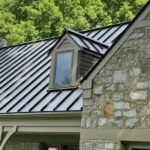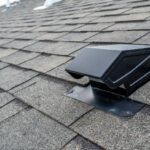Are Home Improvement Loans Tax-Deductible?
April 22, 2019 | By Mike Gonet | Filed under: Blog

Every contractor, metal roofing contractors or otherwise, have told you that upgrading your home is a significant but necessary expense. Sometimes you have to take out home improvement loans. There’s nothing wrong with this, but there is the lingering question of whether those loans are tax-deductible.
In this post, Classic Metal Roofs LLC discusses if your home improvement loan is tax-deductible.
Home Improvement Loans: Are They Tax-Deductible?
A question often asked by homeowners and the short answer is yes. It is possible for a tax deduction from a home improvement loan via the loan interest as long as you meet two conditions. The first would be your home improvement loan must be secured by your primary residence, which means the home must be the one you are living in. The second is using the proceeds to improve the property in a substantial manner, such as changing your previous roofing system to a better one, like metal shingle roofs or standing seam metal roofing.
These “substantial improvements” are known as capital improvements and usually qualify for tax purposes. These capital improvements include adding a new room, replacing the entire roof, paving the driveway, adding new siding, building a pool, and so on. Repairs and maintenance don’t count since they merely restore what you fixed to its original state and don’t improve the property’s value.
Since 2018, you can deduct the interest on your loans from $375,000 to $700,000 depending on whether or not you file jointly or separately. If you’re uncertain as to how everything works or if you have a hard time figuring things out, we recommend hiring a CPA to help you along the way.
Turn to Classic Metal Roofs LLC for your metal roofing installation needs. We are your number one provider of metal roof services. Give us a call at (866) 660-6668 or fill out our Free Consultation form to get “the best roof under the sun”.. We serve homeowners, builders, and architects in MA, RI, southern NH, and CT.





